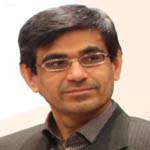Understanding the Discourse of Emergence and Alternation of Housing Policy in Iran’s 4th and 5th Development Plans
Author(s):
Article Type:
Research/Original Article (دارای رتبه معتبر)
Abstract:
Objective
From the perspective of the discourse approach, this present study aims to comprehend the reason and method behind the alteration of housing policy in the fourth and fifth development plans of Iran.Methods
This study employed Laclau and Mouffe's discourse approach as a research methodology to examine the housing policy in Iran's fourth and fifth development plans. The method includes two primary steps: Firstly, identifying the main signifiers to describe the semantic system of the discourse, and secondly, describing the social theory of each discourse based on the centrality of antagonism. Following the second step, the construction of the discourse on housing policy in each program is separately explained.Results
The results of discourse analysis in the present study show that the fourth program seeks to achieve justice. According to the discourse analysis literature of Laclau and Mouffe, justice is considered a floating signifier in this discourse due to its polysemous feature. Other signs mentioned in this program show that this program is trying to achieve its desired justice by empowering the subjects financially and economically and distributing residential economic resources in a targeted manner. Therefore, it can be said that the justice discussed in this discourse is economic justice. The hegemony of the discourse of economic justice causes antagonism with other possible meanings of justice and causes antagonism with other alternatives of justice such as welfare, development, right, and need. By excluding the signs of social justice, the fifth plan chooses sustainable development as its floating sign. The expansion of urban areas and the establishment of new cities in the fourth development plan have resulted in challenges that have led to a shift towards sustainable development as the focal point of housing policy in the fifth plan. Neglecting the internal development of cities and worn-out fabric on the one hand and endangering natural resources and agricultural lands, on the other hand, are the most important issues that have been created by the sprawl of urban areas and the establishment of new cities. In such a scenario, the fifth development plan uses the nodal signifier of "internal development and empowerment" to encapsulate the floating signifier of sustainable development. The established meaning of sustainable development, which is influenced by the United Nations Human Settlements Program, is different from the previous discourse and contradicts other possible meanings of sustainable development. Non-interference in nature and the pristine environment is the established meaning of sustainable development in this discourse. The discourse of targeted and managed intervention is also viewed as a competing perspective to this approach.Conclusion
By dominating the discourse of economic justice, Iran’s fourth development program contradicts other alternatives of justice, such as cultural justice and social justice, and general alternatives of justice, such as rights, needs, and goods, and has excluded them. By dominating sustainable development, the fifth Development Plan also contradicts other types of development including the non-physical and environmental nature of housing. The investigation of the emergence and alteration of housing policy from the discourse approach perspective in other development programs can complement the discourse analysis conducted in this study. Identifying the prevailing discourses on housing policy in the development plans can reveal the discourses that are missing in this area, thus aiding in the formulation of the 7th development plan. This can also shed light on the development of topics and methods and identify individuals who have been deprived of housing policies. In addition, by analyzing the discourse governing the issue of housing in the Constitution and comparing it with the discourses of housing in development plans, it is possible to determine the compatibility of these plans with the Constitution. In terms of method, it is possible to analyze the housing policy in Iran by using other discourse analysis approaches such as Fairclough or discourse psychology.Keywords:
Language:
Persian
Published:
Quarterly Journal Public Administration, Volume:15 Issue: 54, 2023
Pages:
293 to 318
https://magiran.com/p2632621
مقالات دیگری از این نویسنده (گان)
-
Exploring the Roles of Policy Entrepreneurs in Public Policy-Making: A Phenomenographic Study
Ali Hamidizadeh, , Reza Eshgarf *
journal of Iranian Public Administration Studies, -
Identifying and prioritizing the obstacles and challenges of data-driven governance from the perspective of applying artificial intelligence and data-based technologies in the public sector
Iman Akbari *, Hasan Danaee Fard, Mahdi Abdolhamid, Mostafa MAHMOUDI, Mehdi Khosravi
Journal Strategic Studies of Public Policy, -
The method of understanding the problematics in the study of public policy: concepts and application
, Hasan Danaeefard *, Seyed Hosein Kazemi
Metodology of Sicial Science and Humanities, -
نقش «سازوکار اعتماد متقابل» در فساد اداری
مجله تاملات رشد، بهار 1399




